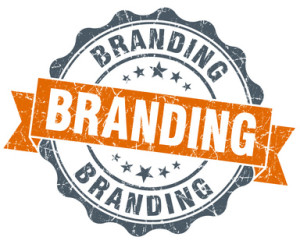
When many people think of powerful brands, they think of the big guys like Ford, Apple, or Starbucks. While these may be massive international companies, this same type of brand recognition can be achieved on a local level by your small business. The importance of small business branding cannot be overstated. What message are you sending to your target audience? If it doesn’t come to you in 60 seconds, it might be time to start re-thinking your brand identity.
Let’s break down some easy ways you can develop a solid brand for your small business that will get your target audience talking!
A Lesson in Branding (From Starbucks)
Have your heard about the conspiracy theory that Starbucks spells your name wrong on purpose when they write your name on your drink? Why would they do this? Well, it’s actually pretty ingenious.
There are rumors out there that say Starbucks spells your name wrong because they know you’ll tell people about it. Whether this rumor is true or not, it’s clearly working for Starbucks’ marketing and advertising purposes. It’s actually a pretty popular social media practice to document Starbucks orders with misspelled names too. If you do a quick search on Instagram, you’ll find tons of hashtags dedicated to this practice. Starbucks has quickly risen as a status symbol in the coffee drinker world. No one would care if their coffee came in a traditional, white cup, but when Starbucks slaps a green mermaid icon on it and misspells a simple name, suddenly everyone cares!
Emotional connection is an essential part of a successful branding campaign. You need to step inside the shoes of your target audience, feel what they feel, and think what they think.
If your small business brand can connect on an emotional and/or personal level, you can sit back and let your audience come to you!
That’s the power of branding. Word of mouth branding is still effective and when you pair that with modern day social media practices, your brand awareness could be off the charts!
4 Ways Branding is Important for Small Businesses
Good branding is more than just your business logo. It’s more about your message, reputation, and emotionally relating to your client behind your logo. What comes to people’s minds when they think of your small business is what your brand really is. Your branding is what will attract new prospects to your small business and keep your existing customers satisfied. It will make or break your business, so this isn’t something you can just push off to the side.
4 Ways Branding Helps Your Small Business:
1. Branding is Your Reputation
Like I mentioned above, your small business brand is important because it shapes how people think of your company. You’re in charge of creating the story, why not write it the way you want? Identify a clear, concise message (this is your mission statement) so readers can quickly and easily understand who you are, what your values are, and why you do what you do.
Your mission statement is a personal promise to each and every prospect that comes across your business. Use your mission statement to set yourself apart from your competition! Give your target audience a reason to choose your small business.
2. Branding Differentiates You from the Competition
When you develop your brand identity, be sure to position yourself differently from your competition. What do you do better than everyone else? Why should consumers choose your brand over ALL of their other options?
Today, shoppers have more options than ever. Telling them what makes your company different saves time in the sales cycle, so don’t make your customers dig around to figure it out. It should be clear and evident on your website what you bring to the table. Don’t be afraid to showcase examples of your expertise and accomplishments!
3. Branding Helps Build Emotional Ties
Branding helps to build emotional ties between your company and your target audience. Have you ever felt touched by a TV commercial? Who can forget the great Budweiser© Clydesdale Super Bowl commercials or the Oscar Meyer© theme song? Customers really do get attached to brands and become huge advocates for them throughout their lives. Now think of recreating that type of brand loyalty on a small business level.
You too have the opportunity to create ties and turn a prospect into a long term customer. It all starts with your small business story!
4. Branding Adds Value to Your Company
Products and services have life-cycles, but your brand will be around forever. By creating a strong foundation, you’ll be setting your company up for success for years to come. You want to implement your brand (this means your business name, logo colors, company values etc.) into your workplace culture, social media profiles, website design, customer interactions, and community outreach.
As an entrepreneur or small business owner, the success of your small business determines your livelihood, so you should be actively integrating it in both your professional and personal life.
How to Create an Emotional Small Business Brand
Do you know how your company is viewed by your customers and target audience? Read reviews about your company online, or ask around. Do this a few times and you’ll start to find out what others are thinking.
Your customers have already bought from you for some reason. Find out why! Again, ask them why they chose you over someone else. You can use these valuable conversations to help focus your branding identity and create more online reviews for your business too!
Use the reasons why your existing customers chose you to build the emotional side of your brand. If you know what keeps your existing customers with you, you’ll be better able to attract more of those ideal customers! You want to make sure you implement those ideas into your web content and design, all your marketing and advertising materials, and your social media presence as well.
Small businesses have the upper hand when it comes to creating real relationships with their customers and clients! Don’t be afraid to be real and open with your small business branding online!
What do you want your target audience to think of when your company comes to mind? Be specific as possible and write it down. Brainstorm how you can best implement those ideas. Does that mean you need to tweak your logo? Maybe it’s time for a website content update?
You want your brand to resonate with your target audience, right? Well, that means your brand identity needs to have an emotional component to it! Meet your audience’s expectations where they are.
In Conclusion
Write your brand identity story today! Try writing one statement or sentence on why your business exists. Then try writing the story by expanding on your sentence. Your brand has the potential to generate a lot of power and attract new prospects, connections, and growth to your small business. Take a look at the sections above to determine what a powerful brand can do for you and how to start creating one right now!


